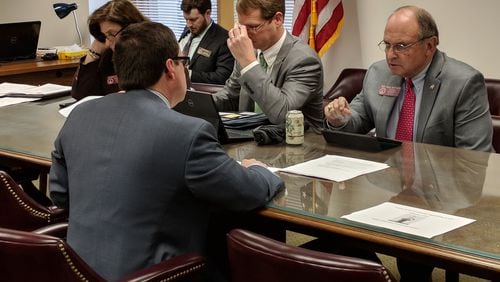Two school bills that could channel more than $30 million in state tax dollars to private schools and charter schools next year are moving through the Georgia House of Representatives.
House Bill 482 allows parents to opt their children out of public schools and take state money with them. The state funding, typically half the amount it costs to educate a student, could be used instead to offset private school tuition or for other educational costs.
House Bill 787, meanwhile, would increase funding for charter schools operating under the authority of the State Charter Schools Commission. The bill by Rep. Scott Hilton, R-Peachtree Corners, would cost about $17 million a year, according to a state analysis.
The "education savings accounts" created by HB 482, by Rep. Wes Cantrell, R-Woodstock, are harder to assess. That's because the amount of additional cost is dependent upon how many recipients currently attend public school. The cost is basically a wash if a public school student opts to leave for a savings account, since the state would no longer send that student's money to the local school district. However, the state Department of Audits and Accounts analysis considered the possibility that as many as 75 percent of participants would not be transferring from a public school and estimated a high-end cost of $17.1 million next year, rising to $69.3 million in 2022 as more students entered the program. The low-end cost was for $5.7 million to $23.1 million.
There are additional costs associated with administration and teacher pay subsidies that could raise the state costs by millions more.
Proponents say traditional schools don’t suit all students, especially those who’ve been bullied or who have disabilities.
Opponents include teachers advocates, who are concerned about the expense of HB 482 when the state already can’t afford to fully fund public schools. The Georgia education budget is about $167 million short of the amount that the state’s own funding formula says schools should get.
Both bills passed out of key House committees this week and could be scheduled for floor votes when the session resumes next week.
About the Author








